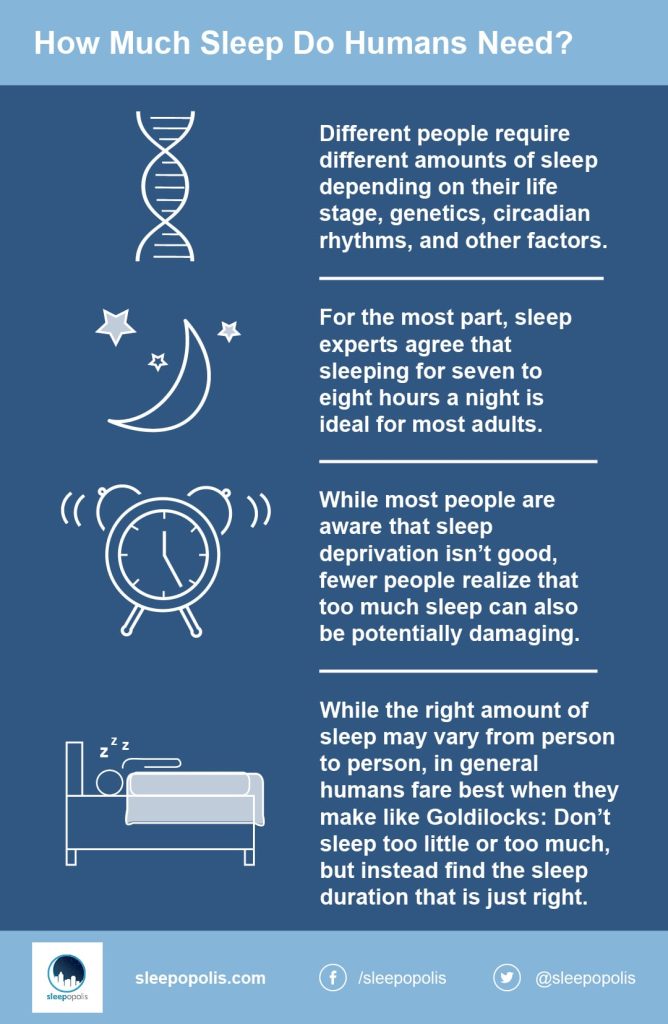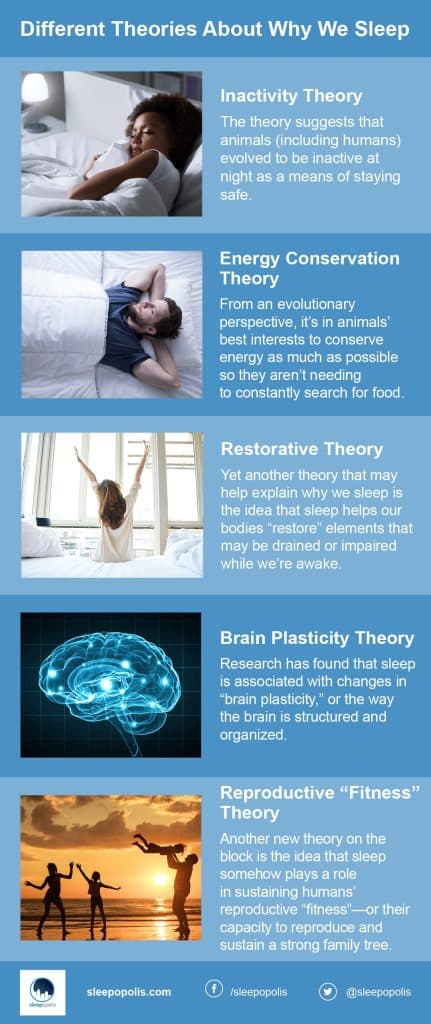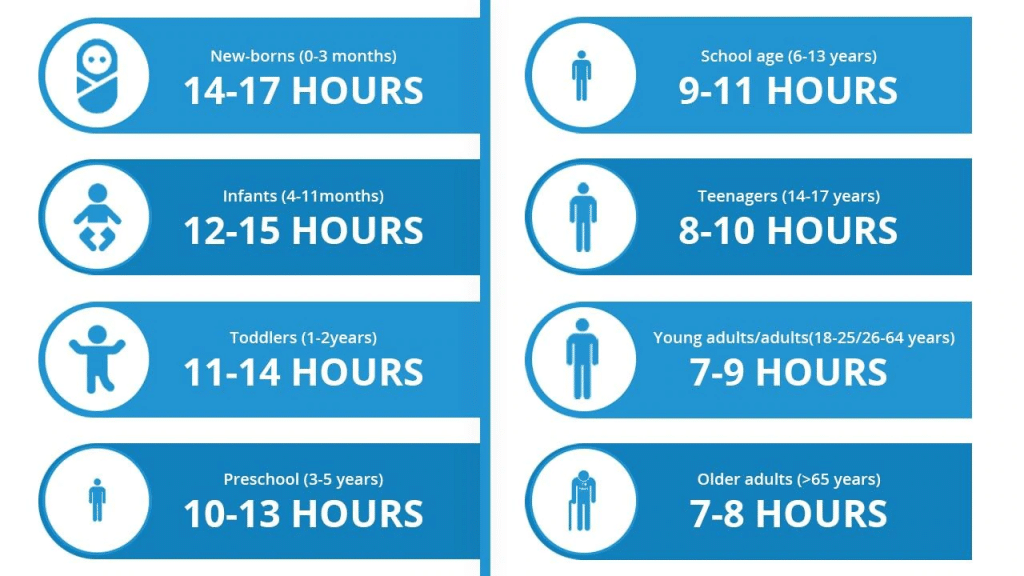Have you ever wondered why we need sleep? It’s a question that has puzzled scientists and researchers alike for centuries. Despite the countless advancements in science and technology, the true purpose of sleep remains elusive. In this article, we will explore the fascinating world of sleep and uncover the reasons behind our nightly slumber. So, prepare to embark on a journey through the realm of dreams as we unravel the mysteries of why sleep is such a vital part of our lives.
Review contents
The Importance of Sleep
Physical Health
Sleep plays a crucial role in maintaining our physical health. When you sleep, your body goes into a state of restoration, repairing and rejuvenating itself for the day ahead. During this time, various bodily functions are regulated, promoting overall wellness. Adequate sleep helps strengthen your immune system, making you less susceptible to illnesses and infections. It also promotes a healthy cardiovascular system, reducing the risk of heart disease. Moreover, sleep is essential for the growth and development of children and teenagers, ensuring their bodies have the necessary time to repair and grow.
Mental Health
A good night’s sleep is equally important for your mental well-being. Sufficient sleep helps regulate mood and emotions, allowing you to feel more stable and balanced throughout the day. Lack of sleep can lead to increased irritability, anxiety, and even depression. Adequate sleep also contributes to improved cognitive functioning, allowing you to think more clearly, make better decisions, and enhance your problem-solving skills. It is during sleep that your brain processes and consolidates information, improving your memory and overall cognitive performance.
Memory Consolidation
One of the crucial functions of sleep is memory consolidation. When you sleep, your brain processes and consolidates the information you learned throughout the day, strengthening your memory and facilitating learning. During the deep stages of sleep, known as slow-wave sleep, memories are organized and stored in a way that can be easily accessed later. This process is essential for long-term retention of information and the formation of new memories. By getting enough sleep, you are allowing your brain to optimize its memory consolidation mechanisms, thus improving your ability to learn and retain information.
Learning and Cognitive Functioning
Sleep has a profound impact on your ability to learn and perform cognitive tasks effectively. During sleep, your brain strengthens the neural connections necessary for learning and understanding new information. It is during this time that your brain consolidates the information you learned during the day, enhancing your ability to retain and retrieve it later. Getting enough sleep not only ensures better memory consolidation but also improves your cognitive functioning, attention, concentration, and problem-solving skills. It is essential to prioritize sleep to optimize your learning potential and cognitive abilities.
Emotional Well-being
Adequate sleep plays a pivotal role in regulating your emotions and overall emotional well-being. When you don’t get enough sleep, you may experience mood swings, increased irritability, and heightened emotional reactivity. Lack of sleep can make it challenging to regulate your emotions effectively, leading to a greater likelihood of experiencing negative emotions such as sadness, anger, and frustration. On the other hand, getting sufficient sleep helps stabilize your emotions, allowing you to respond to situations more calmly and rationally. It improves your overall emotional resilience, enabling you to cope with stressors more effectively.
Sleep Deprivation and its Effects
Physical Consequences
Sleep deprivation can have detrimental effects on your physical health. When you consistently fail to get enough sleep, you expose your body to a higher risk of developing various health conditions. Studies have shown that sleep deprivation is associated with an increased risk of obesity, diabetes, and cardiovascular diseases such as hypertension and heart disease. It can also weaken your immune system, making you more susceptible to infections and illnesses. Furthermore, chronic sleep deprivation can lead to an increased likelihood of accidents and injuries due to impaired coordination and reaction time.
Cognitive Impairment
Lack of sleep negatively affects your cognitive abilities and impairs your overall brain function. When you are sleep-deprived, your attention span, concentration, and memory become compromised. You may experience difficulty focusing on tasks, making decisions, and retaining information. Sleep deprivation has also been linked to decreased problem-solving abilities and creativity. Without adequate sleep, your cognitive performance declines, making it challenging to perform well in various areas of your life, including work, school, and personal endeavors.
Emotional Disturbances
Sleep deprivation can have a significant impact on your emotional well-being. It can lead to increased irritability, mood swings, and emotional instability. You may find yourself feeling more anxious, agitated, and emotionally reactive when you haven’t had enough sleep. Lack of sleep can also contribute to symptoms of depression, making it harder to experience positive emotions and find pleasure in activities. Your overall emotional well-being is compromised when you consistently fail to prioritize sleep, highlighting the significance of obtaining sufficient rest for your mental health.
Increased Risk of Health Conditions
Consistently not getting enough sleep can have long-term health consequences. Chronic sleep deprivation has been associated with an increased risk of various health conditions, including heart disease, diabetes, obesity, and even certain types of cancer. It can disrupt your body’s hormonal balance, affecting the regulation of appetite, metabolism, and weight. Sleep deprivation also increases inflammation in the body, which is linked to a higher risk of developing chronic conditions. By prioritizing sleep, you can reduce the likelihood of developing these health issues and maintain a healthier lifestyle.
Hormonal Regulation
Growth and Development
Sleep plays a critical role in the growth and development of individuals, particularly children and teenagers. During sleep, the body produces growth hormone, which is essential for physical growth and development. This hormone helps repair tissues and stimulates bone growth, ensuring healthy development and optimal functioning of the body. Adequate sleep is particularly important during periods of rapid growth, such as adolescence, as it provides the necessary time for the body to undergo these crucial processes.
Metabolism and Weight Regulation
Sleep also has a significant impact on metabolism and weight regulation. When you are sleep-deprived, your body’s hormonal balance is disrupted, leading to an increased release of ghrelin, a hormone that stimulates appetite, and a decreased release of leptin, a hormone that signals feelings of fullness and satisfaction. As a result, sleep deprivation often leads to overeating and an increased risk of weight gain. Additionally, lack of sleep can impair your body’s ability to regulate blood sugar levels effectively, increasing the risk of insulin resistance and type 2 diabetes. It is essential to prioritize sleep to maintain a healthy metabolism and weight.
Immune System Function
Inflammation and Healing
Sleep plays a crucial role in regulating your body’s immune system. When you sleep, your body releases proteins called cytokines that help promote sleep and regulate inflammation. Inflammation is an essential part of the immune response and aids in healing damaged tissues. Lack of sleep can disrupt this inflammatory response, leading to increased inflammation and impaired healing. Consistently not getting enough sleep can weaken your immune system, making you more susceptible to infections and prolonging the recovery process from illnesses and injuries.
Immune Response
Sufficient sleep is necessary for a strong immune response. During sleep, your body produces and releases antibodies, proteins that help fight off infections and viruses. Inadequate sleep hinders the production of these crucial antibodies, compromising your immune system’s ability to defend against pathogens effectively. This can increase your vulnerability to infectious diseases, making it more challenging for your body to recover from illnesses. By prioritizing sleep, you are allowing your immune system to operate optimally, providing you with enhanced protection against various infections and diseases.
Brain Health and Restoration
Brain Waste Removal
Sleep plays a vital role in the removal of waste products from your brain. Throughout the day, your brain accumulates metabolic byproducts and cellular debris that need to be cleared out. During sleep, the glymphatic system in your brain becomes more active, facilitating the removal of these waste products. Without sufficient sleep, the clearance process becomes impaired, leading to a buildup of toxins that can potentially contribute to various neurological disorders and cognitive decline. Good sleep helps ensure that your brain is able to efficiently eliminate waste, keeping it healthy and functioning optimally.
Neuronal Repair and Recovery
Sleep is crucial for the repair and recovery of your brain cells. During sleep, your brain goes through a process of cellular maintenance, repairing and restoring damaged neurons. It is during this time that new connections are formed and existing ones are strengthened, enhancing overall brain function. Lack of sleep can prevent this restorative process from occurring effectively, leading to a decline in cognitive abilities and an increased risk of neurological disorders. Prioritizing sleep allows your brain to undergo necessary repairs and recover from the daily wear and tear, promoting optimal brain health and functioning.
Regulation of Mood and Emotions
Emotional Stability
Getting enough sleep is essential for regulating your mood and emotions. When you are well-rested, you are better equipped to cope with stressors and maintain emotional stability. Adequate sleep promotes positive emotions and helps regulate negative emotions, allowing you to navigate daily challenges with a more balanced mindset. Conversely, sleep deprivation can lead to increased irritability, mood swings, and emotional reactivity. By prioritizing sleep, you give yourself the best chance of maintaining emotional well-being and responding to situations in a more stable and constructive manner.
Stress Response
Sleep plays a crucial role in regulating your body’s stress response. When you are sleep-deprived, your body produces higher levels of stress hormones, such as cortisol, which can lead to increased anxiety and a heightened stress response. Chronic sleep deprivation can make it difficult for your body to regulate these stress hormones effectively, leading to a constant state of heightened arousal. Adequate sleep is vital for reducing stress levels, promoting relaxation, and enhancing your overall ability to cope with stress. Prioritizing sleep can significantly improve your resilience and ability to manage stressors in your daily life.
Enhanced Performance and Productivity
Athletic Performance
Sleep is critical for athletes and individuals engaged in physical performance. During sleep, your body repairs and rebuilds muscles, allowing for optimal recovery and growth. It is also during sleep that the body produces human growth hormone (HGH), which plays a crucial role in muscle development and repair. Sufficient sleep enhances your athletic performance, improves reaction time, and increases coordination. When you prioritize sleep, you give your body the necessary time to recover and prepare for physical challenges, enabling you to perform at your best.
Cognitive Performance
In addition to physical performance, sleep also has a significant impact on cognitive performance. When you are well-rested, your attention, concentration, and memory are enhanced, leading to improved cognitive abilities. Adequate sleep promotes optimal brain function, allowing you to think more clearly, make better decisions, and solve problems more effectively. Whether you are studying for an exam, preparing for a presentation, or engaging in any mentally demanding tasks, getting enough sleep is crucial for maximizing your cognitive performance and achieving your goals.
Creativity and Problem-solving
Sleep has been shown to facilitate creativity and enhance problem-solving abilities. During sleep, your brain continues to process information and make connections, even when you are not consciously aware of it. This subconscious processing allows for creative insights and novel solutions to problems. By giving yourself sufficient sleep, you are opening up the possibility of accessing this creative potential and promoting innovative thinking. Whether you are an artist, a writer, or someone who needs to think outside the box in their work, prioritizing sleep can help unleash your creativity and boost your problem-solving skills.
Aid in Metabolism and Weight Regulation
Energy Conservation
Sleep plays a role in conserving energy and regulating your body’s metabolism. When you are well-rested, your body utilizes energy more efficiently, preserving it for essential bodily functions. Lack of sleep disrupts this energy conservation mechanism, leading to increased hunger and cravings for high-calorie foods. Additionally, sleep deprivation affects the regulation of hormones involved in appetite control, such as ghrelin and leptin, leading to overeating and weight gain. Prioritizing sleep is essential for maintaining a healthy metabolism, managing your weight, and preventing the development of obesity-related conditions.
Appetite Regulation
Sufficient sleep is crucial for regulating your appetite and preventing overeating. When you are sleep-deprived, your body produces higher levels of ghrelin, a hormone that stimulates appetite, while reducing the production of leptin, a hormone that signals feelings of fullness. This hormonal imbalance can lead to increased cravings for unhealthy foods and a tendency to consume larger portions. By ensuring you get enough sleep, you are helping your body maintain a proper balance of appetite-regulating hormones, making it easier to make healthy food choices and maintain a healthy weight.
Reduce Risk of Chronic Conditions
Heart Disease
Sleep plays a vital role in reducing the risk of heart disease. When you consistently fail to get enough sleep, you increase your likelihood of developing conditions such as hypertension, atherosclerosis, and heart attacks. Sleep deprivation negatively affects blood pressure and cholesterol levels, increasing the strain on your heart. It also disrupts your body’s regulation of stress hormones, further contributing to cardiovascular issues. Prioritizing sleep is essential for maintaining a healthy cardiovascular system and reducing the risk of heart disease.
Diabetes
Adequate sleep is crucial for maintaining proper blood sugar control and reducing the risk of developing type 2 diabetes. Sleep deprivation impairs your body’s ability to regulate insulin, a hormone responsible for blood sugar management. Lack of sleep is also associated with an increased risk of insulin resistance, where your body becomes less responsive to the effects of insulin. Both of these factors contribute to the development of diabetes. By prioritizing sleep, you can enhance your body’s insulin sensitivity and reduce the risk of developing this chronic condition.
Obesity
Sleep plays a significant role in weight regulation and can help prevent the development of obesity. When you consistently lack sufficient sleep, your body’s hormonal balance is disrupted, leading to increased appetite, cravings, and a decreased ability to control portion sizes. Sleep deprivation also affects your body’s metabolism, impairing its ability to efficiently burn calories. These factors contribute to weight gain and an increased risk of obesity. By prioritizing sleep, you can help regulate your appetite, maintain a healthy metabolism, and reduce the likelihood of developing obesity-related conditions.
Sleep Patterns and Circadian Rhythms
Regulation of Sleep/Wake Cycle
Sleep patterns and the sleep/wake cycle are regulated by your internal body clock, also known as the circadian rhythm. Your circadian rhythm influences your sleep patterns, alertness levels, and overall physiological functioning. It is regulated by various external cues, such as light exposure, temperature, and social schedules. Disruptions to your circadian rhythm, such as irregular sleep patterns and jet lag, can lead to difficulties falling asleep, staying asleep, and maintaining a consistent sleep schedule. It is important to establish regular sleep routines and prioritize a consistent sleep schedule to ensure your circadian rhythm remains in sync and promotes healthy sleep patterns.
Impact of External Factors on Sleep Patterns
External factors can significantly impact your sleep patterns and quality of sleep. Factors such as noise, temperature, light exposure, and electronic device usage can disrupt your sleep, making it challenging to obtain a sufficient amount of restful sleep. For example, exposure to bright light, particularly from electronic devices, can suppress the release of sleep-inducing hormones, making it harder to fall asleep. Similarly, excessive noise and uncomfortable temperatures can disturb your sleep and lead to frequent awakenings throughout the night. Creating a sleep-friendly environment by minimizing external disruptions can help improve the quality of your sleep and promote better overall well-being.
In conclusion, sleep is of utmost importance for our physical health, mental well-being, memory consolidation, learning and cognitive functioning, emotional well-being, hormonal regulation, immune system function, brain health and restoration, regulation of mood and emotions, enhanced performance and productivity, metabolism and weight regulation, and reducing the risk of chronic conditions. By prioritizing and ensuring sufficient sleep, you can optimize your overall health, enhance your cognitive abilities, and improve your quality of life. So, make sleep a priority and give yourself the rest and rejuvenation you need for a healthier, happier you.
































